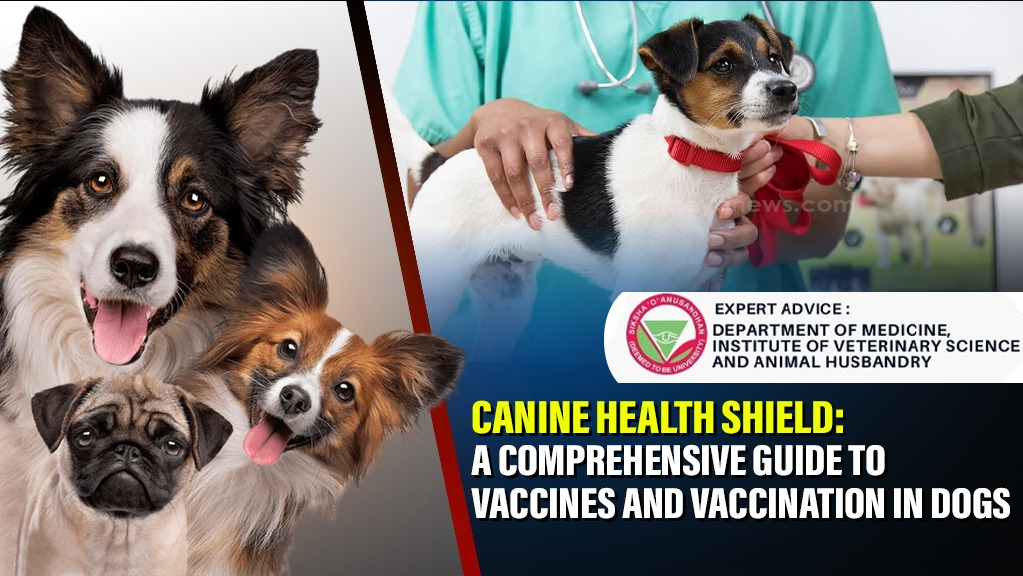

The Importance of Dog Vaccination for a Healthy Canine Companion
The age-old adages "Health is wealth" and "Prevention is better than cure" ring particularly true when considering the well-being of our canine companions. Vaccination stands as a cornerstone of preventive healthcare for dogs, offering a robust defense against several debilitating and sometimes fatal diseases. Significantly, some of these diseases, such as rabies and leptospirosis, also pose a risk to human health, underscoring the public health importance of canine immunization. Initiatives like the global "Zero human deaths due to dog-mediated rabies by 2030" campaign, actively implemented in India with large-scale dog vaccination drives, highlight this critical link. For instance, the Institute of Veterinary Science, SOA, Bhubaneswar, contributes to this effort by offering free rabies vaccines for registered dogs.
Understanding Key Vaccine-Preventable Diseases in Dogs
Several diseases prevalent in India, including Odisha, can be effectively prevented through timely vaccination:
Navigating Vaccine Types and Schedules
Veterinary science offers various types of vaccines, categorized based on the antigen they contain. These include core vaccines (recommended for all dogs), non-core vaccines (recommended based on lifestyle and risk), mixed vaccines (protecting against multiple diseases), and live attenuated vaccines. Current evidence suggests that modified live virus (MLV) core vaccines offer robust immunity. In India, dogs are commonly vaccinated against distemper, hepatitis, parvovirus, leptospirosis, and rabies – the first four being globally recognized core diseases.
The timing of vaccination is crucial, especially for puppies. Diseases like parvovirus and distemper can be particularly dangerous for young dogs. Fortunately, puppies receive initial protection through maternal antibodies transferred from vaccinated mothers, typically lasting for the first six weeks of life. The initial vaccination series for distemper, hepatitis, and parvovirus usually begins when a puppy is 6 to 8 weeks old. This is followed by two booster doses at 10–12 weeks and 14–16 weeks. Subsequent vaccinations are generally administered annually. Rabies vaccination typically starts at 3 months of age.
The World Small Animal Veterinary Association (WSAVA) Vaccination Guidelines for 2024 emphasize tailoring vaccination schedules to a dog's lifestyle and geographical location. Puppies are generally vaccinated every 2 to 4 weeks, with the final dose given at 16 weeks of age or older. If a puppy receives only a single vaccination, it should be administered at 16 weeks or older. Revaccination is recommended at or after 26 weeks of age. For puppies from unvaccinated mothers, vaccination can start as early as 4 weeks to mitigate disease risk. Post-exposure rabies vaccination follows a different, specific protocol.
Important Considerations for Dog Vaccination
The Overarching Benefits and Best Practices
Vaccination is fundamental to keeping pets healthy, avoiding costly treatments for preventable diseases, and preventing irreversible damage. It also contributes to "herd immunity," minimizing the spread of infectious diseases among the broader pet population. While crucial, vaccines should be administered judiciously; core vaccines, for example, should not be given more frequently than necessary in adult dogs.
Before, during, and after vaccination, certain precautions are advisable. Vaccines must be stored correctly under cold chain conditions and administered only to healthy pets showing no signs of illness. Stress, such as heat stress, should be avoided around the time of vaccination. Immunosuppressive drugs like corticosteroids should not be used immediately before or after vaccination.
Maintaining a detailed and accurate vaccination record is essential. This record, including vaccine type, administration date, manufacturer label, batch number, and the veterinarian’s details, is vital for ongoing healthcare, legal compliance, and requirements for travel or boarding facilities. Responsible vaccination is a key component of diligent pet ownership, safeguarding not only individual pets but also contributing to community health.
All dogs should receive the benefit of vaccination.
With Inputs from: Dr. Sonali Sahoo and Dr. Ritu Gupta, Asst Professors in Veterinary Medicine, IVS &AH, SOA, Deemed University, Bhubaneswar.